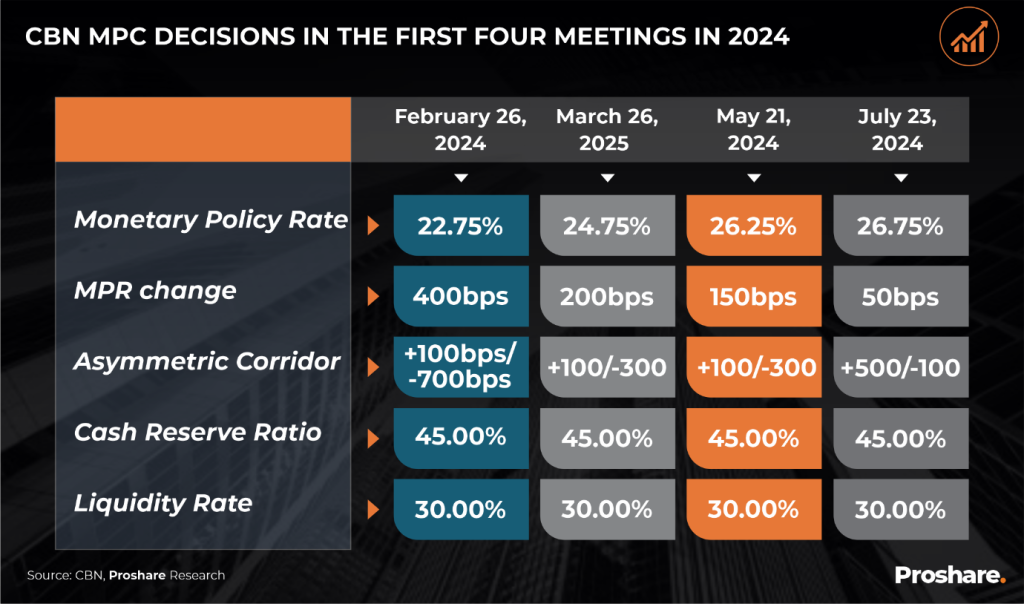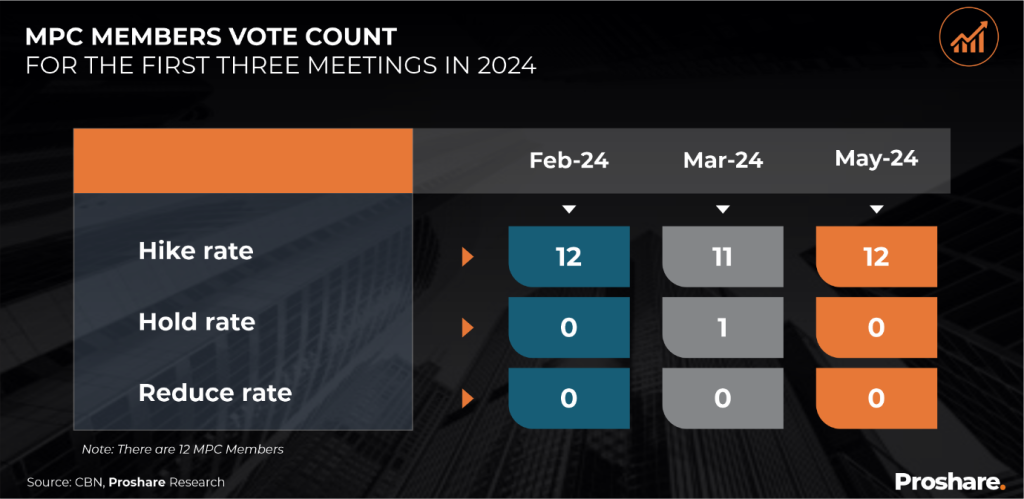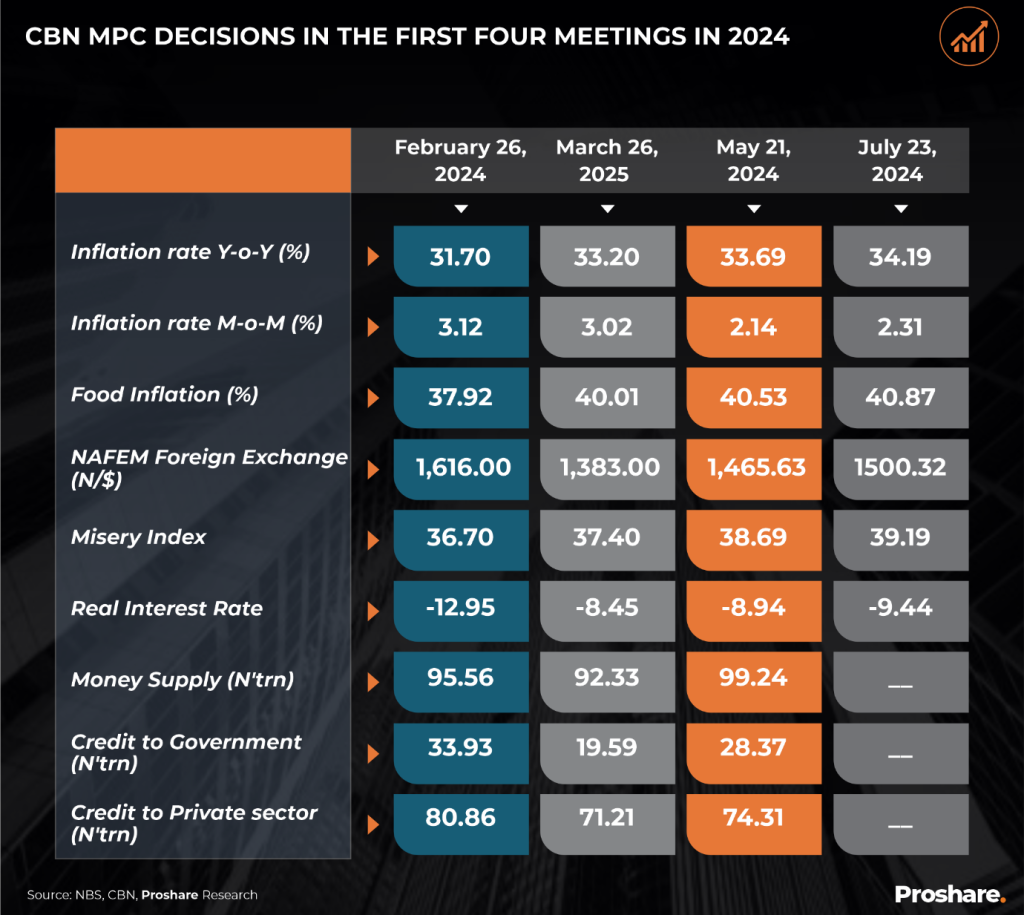CBN MPC Raises MPR to 26.25%, As Inflation Jitters Persist

The Central Bank of Nigeria (CBN) Monetary Policy Committee (MPC) has raised its monetary policy rate (MPR) for the fourth consecutive time in 2024. At the end of its meeting on July 23, 2024, the apex bank raised the MPR by 50 basis points to 26.75% from 26.25%. Proshare Analysts had previously anticipated a possible CBN rate hike of 50 to 100 basis points as the CBN seeks to maintain a hawkish policy in curbing inflation (see Table 1 below).
Table 1:

The July 2024 interest rate decision reiterates the MPC members’ commitment to a particular rate path. Previous voting patterns suggest that MPC members maintained an equal view on tightening the MPR in all MPC meetings in 2024 (see Table 2 below).
Table 2:

Performance Across Key Indices
Proshare analysts described the last rate hike as a necessary monetary policy that will remain insufficient to curb inflation in Nigeria. In line with our projection, inflation has remained elevated. Mixed performance has been recorded across major indicators over the past six months (see Table 3 below).
Table 3:

Reactions Since Last MPC Rate Hike of May 21, 2024
- Month-on-month (M-o-M) inflation declined for three consecutive months but was muted in June 2024.
- Foreign exchange has remained relatively stable but depreciated further from N1,462 (N1,466) on May 21, 2024, to N1,590 at BDC (NAFEM) rates
- Remittances rose to $2.34bn between January and June 2024, from $1.58bn in the same period in 2023.
- Capital importation grew by $5.92bn between January and June 2024, up from $1.77bn in the same period in 2023. However, this was largely driven by foreign portfolio investments (hot money).
- Gross reserves rose by about 10.03% to $36.01bn as of July 19, 2024, from $32.72bn on May 21, 2024. Analysts have raised concerns that total debts, which have grown by over N121.67trn, might largely drive the reserve growth.
- Fixed income market rates remained largely attractive with the elevated rates; however, contractionary liquidity conditions and recapitalization activities reduced subscriptions compared to previous periods.
- Minimum wage increased to N70,000 from N30,000 however, the real value of household wages remains.
Closing Thoughts: Between Policies and Expectations
The CBN’s orthodox approach to monetary policy has remained ineffective so far. A major lesson learned is that adopting an orthodox approach to unorthodox situations may not be holistically effective in curbing inflation.
Proshare analysts highlight persistent challenges such as the devalued naira and inadequate food supply, which continue to hinder efforts to combat inflation effectively. Consequently, inflationary pressures are anticipated to persist and potentially escalate in the forthcoming months despite efforts to reduce liquidity surplus. Proshare analysts also note that the end game of policies must be carefully considered as a forming bubble might be a blinder only to be seen when a bubble burst occurs.




